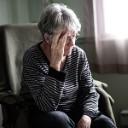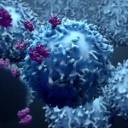-
June 28: The Week in Cancer News
A study indicates that many African Americans who could benefit from lung cancer screening are not eligible, and an oncologist writes about his experiences with medical aid in dying.
by Kate Yandell
-
Cancer Care on a Native American Reservation
For the first time, people living in the Navajo Nation who are diagnosed with cancer can get treated for the disease without leaving tribal lands.
by Kate Yandell
-
Walking Back From Cancer
An American expat in Norway describes how a favorite walking trail aided him during treatment and recovery.
by Steven Ford
-
June 21: The Week in Cancer News
A study shows that more than a third of U.S. cancer survivors experience chronic pain, and the U.S. Food and Drug Administration approves another immunotherapy for treatment of small cell lung cancer.
by Kate Yandell
-
Proton Therapy Is Associated With Reduced Side Effects
When combined with chemotherapy, the newer form of radiation comes with fewer severe side effects than standard radiation therapy, a study suggests.
by Sue Rochman
-
June 14: The Week in Cancer News
A physician writes about the long-term effects of her treatment for Hodgkin lymphoma in the 1960s, and the U.S. Food and Drug Administration approves an immunotherapy drug as an initial treatment for metastatic head and neck cancer.
by Kate Yandell
-
So You Want to Serve on a Scientific Review Panel?
Cancer patient advocates who review research proposals can provide valuable perspective.
by Bob Riter, Monica Vakiner and Carole Baas
-
June 7: The Week in Cancer News
A study finds that a targeted therapy approved to treat advanced breast cancer lengthens survival, and data indicate that Medicaid expansion has helped ease racial disparities in access to cancer care.
by Kate Yandell
Cancer Talk
Lessons From 20 Years Living With Cancer
Multiple myeloma survivor Jonathan Gluck reflects on uncertainty, and the scientific progress that has kept him living with cancer for more than two decades.
by Eric Fitzsimmons
The Enduring Importance of Cancer Disparities ResearchOpening session from AACR conference highlights how perseverance and adversity have informed cancer disparities research over the years.
by Eric Fitzsimmons
Most Cancer Survivors Don’t Meet Healthy Diet GoalsDespite research linking fruits and vegetables to cancer survival, many people do not change their eating habits after diagnosis.
by Darlene Dobkowski
Many People Don’t Get Colonoscopy After Receiving Abnormal Blood TestsAbout half of people who receive abnormal results from colorectal cancer screening tests don’t follow up with a colonoscopy.
by Laura Gesualdi Gilmore












